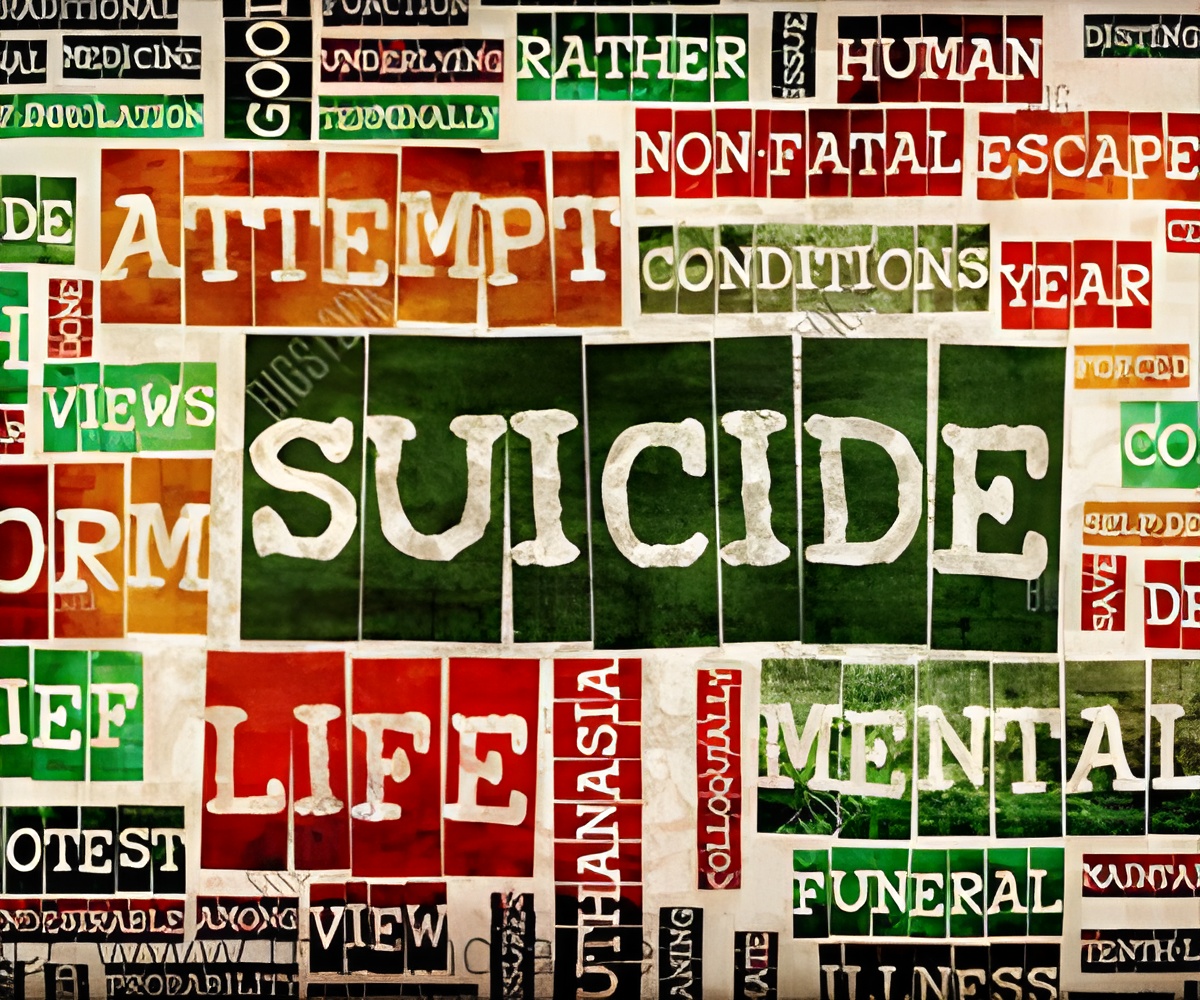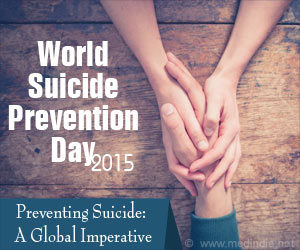The term suicide denotes self-planned and deliberate termination of one’s life. Suicide is the most common cause of death among the psychiatric patients.

- The most common method of suicide is hanging
- In case of a parasuicide report, the most common method is wrist cutting
- Suicide in a 60-year-old married male is far less common in comparison to a 30-year-old unmarried male.
- About 15-50% people leave a suicide note.
The term suicide denotes self-planned and deliberate termination of one’s life. Suicide is the most common cause of death among the psychiatric patients. Suicide rates increase with age; the highest rates of suicidal tendencies are seen in the adolescents and young adults in the age group of 15-30 years old. A completed suicide history is more common in males, and suicide attempts are far more common in females.
Psychiatric Disorders: They are the main cause of suicide in people. Depression stands the most common and alcoholism stands the second most common way to attempt suicide. Other causes are drug abuse, substance abuse, bipolar disorder, personality disorders, dependence, schizophrenia, and dementia.
Physical Illness: Diseases like cancer, AIDS, multiple sclerosis, head trauma.
Psychosocial Factors: Failure in love, marital difficulties, family dispute, and illegitimate pregnancy, losing a loved one, unemployment and bullying
Biological Factors: There is a marked decrease in serotonin levels with decreased urinary and 5-HIAA (A urinary metabolite)
The three most important causes of suicides among the above factors are:
We look for the following warning signs in an individual suffering from a major depression and if he or she is at a very high risk of suicide and suicidal tendencies:
- Depressed or low mood: a person feels empty or sad and tearful.
- Loss of interest in all the day-to-day pleasurable activities.
- Loss of energy, feeling fatigue or weakness
- Loss of confidence or self-esteem
- Unreasonable feelings of self-reproach, excessive or inappropriate guilt.
- Recurrent thoughts of suicide or death or suicidal behavior.
- Diminished activity to think or concentrate or indecisiveness.
- Psychomotor agitation or retardation
- Insomnia or hypersomnia
- Decrease or increase in appetite
- Increased consumption of alcohol or drugs.
The document on suicide prevention, self-harm and managing low mental state of an individual stated these factors, which could decrease the risk of suicidal tendencies in individuals:
- Start spreading awareness that suicide is a public health problem that it is avoided.
- Develop broad-based support for suicide prevention and future attempts.
- Implement strategies to reduce the stigma associated with being a victim of poor mental health, substance abuse and an agent of suicide prevention services.
- Implement and act on community-based suicide prevention programs
- Initiate the efforts to reduce access to lethal means and methods of self-harm and suicide.
- Implement training for recognition of at-risk behavior and delivery of effective treatment for suicidal thoughts and tendencies.
- Develop and promote effective clinical and professional practices; thereby diverging the suicidal thoughts to happy thoughts.
- Psychotherapy - It is also called as psychological counseling or talk therapy.
- This method explores the issues that make the person feel suicidal and learn skills to help manage emotions more effectively. The therapist and the patient can work together to develop a treatment plan for the same.
- Medications - Antidepressants, antipsychotic medications, anti-anxiety medications and other medications for mental illness can help decrease the symptoms, which decrease the suicidal thoughts in future.
- Treatment for drug or alcohol addiction can include detoxification, addiction treatment programs, and rehabilitation.
- Family support and education can also help in understanding what is going on in the mind of a person who is suicidal, and this approach can help a person to have a normal and relaxed state of mind.
Source-Medindia










